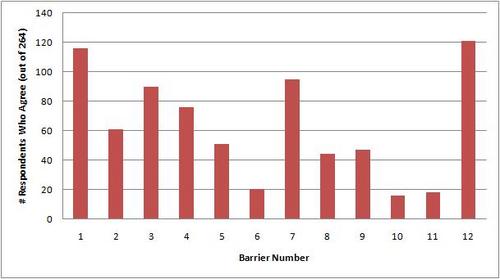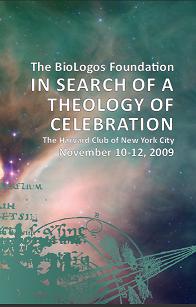served as an artificial barrier that blocks some from entering the
realm of faith. The first of these papers, from evangelical theologian Bruce Waltke, is already available on the BioLogos Web site.
Titled “Barriers to Accepting the Possibility of Creation by Means of an Evolutionary Process,” Waltke’s paper looks at eleven different factors that make it difficult for evangelicals to accept evolution as a valid means for divine creation. The eleven barriers are:
- The creation accounts of Genesis 1 and 2, when interpreted by the grammatico-historical method [hereafter assumed], cannot be harmonized with creation by the process of evolution.
- The creation accounts of Genesis 1 and 2 and the genealogies of Genesis 5 and 11 cannot be reconciled with the extended period of time demanded by creation by means of an evolutionary process.
- God’s sentence of death and decay on the creation in connection with Adam’s Fall can not be harmonized with the theory of creation by the process of evolution.
- The theory of creation by the process of evolution does not harmonize with the doctrine of Adam’s headship over the whole human race.
- The Institute of Creation Research, founded by Henry Morris, has presented sufficient scientific evidence to reject the theory of creation by the process of evolution.
- The Reasons to Believe Ministry, represented by Hugh Ross, has presented sufficient scientific evidence to reject the theory of creation by the process of evolution.
- Apologists such as those of the Intelligent Design Movement, fathered by Phillip E. Johnson, have made a sufficient case to reject the theory of evolution and to replace it with a theory of intelligent design.
- Ken Ham rightly argues “Scientists only have the present–they do not have the past,” ruling out the possibility of science to theorize the history of origins.
- The apparent age of the universe can be explained by reckoning that God created the universe with apparent age.
- The Gap Theory (i.e., the destruction of an original creation) explains the geological/fossil record) hinders me from accepting the theory of creation by evolution.
- The Framework Hypothesis (i.e., the days of Genesis are artistically arranged and not literal) hinder me from accepting the theory of creation by evolution.
To gauge the prevalence of these barriers among evangelical theologians, Waltke surveyed educators at seminaries participating in the Fellowship of Evangelical Seminary Presidents. The graph above shows the number of respondents that found each of these eleven barriers as a reason they can’t accept creation by means of evolution (those who answered #12 said they can accept theistic evolution).
Waltke’s full paper provides a more detailed description of the eleven barriers, analyzes the results of his survey and explains what these results can show us about the relationships between evangelicals and evolution.
Look for more white papers from the November conference in our Scholarly Essays section in the coming months.


